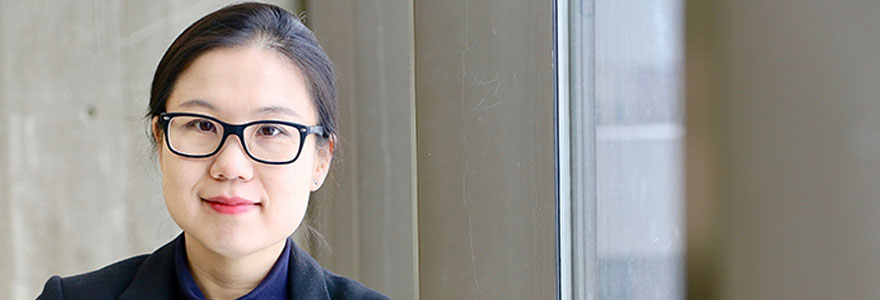News and Updates
Contact
Faculty of Social Science
Social Science Centre
Room 9438
Western University
T. 519-661-2053
F. 519-661-3868
E. social-science@uwo.ca
Cross-border love a complex affair
February 16, 2018
Story by Aniruddho Chokroborty-Hoque/ Photo by Paul Mayne
In the world of Kate Choi, the wedding ring is a portable mini-architect – it builds bridges between people and their families; it shapes entire neighbourhoods and communities. Choi is Assistant Professor in the Department of Sociology.
But before building these bridges, newly arrived immigrants have to break down walls of culture, language, income, education and race.
By examining marital choices of immigrants, Choi is pioneering ways of studying the consequences of international migration.
“In multicultural societies, the spousal choice of immigrants is a barometer of social acceptance and integration. Intimate unions require a higher degree of acceptance, compared to hiring someone or becoming friends with someone,” Choi said.
At Western, Choi is continuing research she began as a doctoral student in the United States – namely, how does international migration alter marriage choices in both origin and destination countries?
As Choi is finding out, beneath quickening pulses and aching hearts is a steady hand guided by economics, demographics and education.
Mexican migration to the United States is a particularly interesting example because it is ‘gender selective,’ she said. “Traditionally, 70 per cent of Mexican migrants in the United States are men; since it is for labour purposes, most men who go are of marriageable age.”
In Mexico, this opens the pool of potential wives for non-migrating men. And because there are fewer available men, it also limits the pool of potential husbands for non-migrating women.
The average Mexican male immigrant has a Grade 8 education, which is the average level of educational attainment in Mexico.
“A sizable portion of Mexican migrants often work in America for a few years, amass a certain amount of wealth and come back home to live comfortably with family and friends,” Choi said.
They then tend to ‘marry up’ beyond their levels of schooling to more highly educated women who remained in Mexico.
Across the border, it’s a similar love story.
Male Mexican migrants who become permanent settlers in America also ‘marry up’ in education. Their partners, generally Mexican-American women with slightly more schooling, often prefer the newly arrived (but lesser-educated) Mexican immigrants to native-born Mexican-Americans with equivalent educations. From the wives’ perspective, the former possess characteristics they don’t perceive in the latter, including work ethic and self-discipline.
“Spousal choices are important for the next generation,” Choi said. “Marriages between poorly educated and low-income individuals generally relegate their children into poverty; whereas when two highly educated, high-income individuals marry one another, the rich get richer.”
International migration reduces these social inequalities in wealth and education; it mixes and brings migrants and the native population closer to one another – despite disparate social, economic, educational and financial backgrounds.

